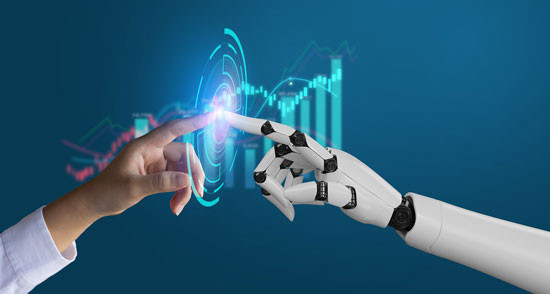The Story of Sam Altman: How One Outside-the-Box Thinker Turned OpenAI Into a Monster Success

Sam Altman: In the Beginning
Born in Chicago, Sam Altman was originally raised in St. Louis, Missouri. He had always shown an aptitude for technology, even from an early age. He received his first computer at the age of eight, for example, and learned to code quickly thereafter.
By 2005, he was already setting his sights on the various ways in which he could apply his passion toward something greater. He spent time at the prestigious Stanford University, where he studied computer science.
At the age of just 19 years old, Sam Altman founded a company called Loopt. It was a mobile application that offered location-based social networking - something that has since become a nearly ubiquitous part of our lives, but in 2005 was certainly seen as a novelty. During his tenure as the company's CEO, he was able to raise more than $30 million from venture capitalists - that's how promising they thought this idea was.
Over the next several years, Sam Altman's career took many turns. After Loopt was acquired by the Green Dot Corporation, he moved on and became a partner at Y Combinator. It's a startup accelerator that has been used to help financially support more than 4,000 companies, including some of the most prominent in the digital space today. This includes but is certainly not limited to ones like Airbnb, Twitch, DoorDash, Dropbox, Reddit, and others.
During his time with the company, Sam Altman indicated that the total valuation of Y Combinator organizations had grown to a colossal $65 billion.

The Ascent of OpenAI
Over the next few years, Sam Altman became closely entwined with an organization called OpenAI. It's a research lab focused on not just artificial intelligence as a concept, but the potential implications thereof. Although Sam Altman wasn't a founder, he (along with other notable names like Elon Musk) were initial board members.
Things were looking so promising that Altman transitioned to be Chairman of the Board for Y Combinator in 2019 so that he could focus more of his attention on OpenAI, before leaving entirely in 2020.
It was during this period that Sam Altman helped OpenAI transition from its non-profit model to a for-profit one. What made it unique was that OpenAI was capped, meaning that any profit was capped at 100 times any investment that was being made. This not only helped Sam Altman raise money by getting the attention of various investment funds, but it also allowed employees to get a stake in the company as well. OpenAI also partnered with Microsoft, which invested nearly $1 billion into the organization.
Advancements started coming quickly from that point forward. In 2020, for example, OpenAI announced what was dubbed GPT-3. This was a language model that was trained on large Internet-based data sets that used natural language to answer questions. It can also translate from one language to another, can improvise text based on user inputs, and more.
The next year, the company introduced DALL-E. This was a deep learning model that could take the descriptions users would provide and use them to generate digital images.
But it was in December 2022 that OpenAI received its highest volume of attention. It was then that Sam Altman and the rest of his cohorts launched a free preview of ChatGPT. It was a chatbot that was built on GPT version 3.5.
It's been so widely talked about - and so heavily used - that OpenAI is expected to make $200 million in revenue by the end of 2023 and $1 billion by as soon as 2024.
Indeed, one can hardly turn on the news at this point and not see discussions about ChatGPT, OpenAI, and the larger implications of artificial intelligence taking place. How it will reshape the way you run your business depends largely on the industry that you're operating in. One thing is for certain, however - it absolutely will.
Many of the time-consuming and manual tasks that were formerly performed by marketing associates can now be fully automated thanks to AI. Predictive analysis of data sets will change forecasting and business modeling forever. AI can be used to analyze current trends and predict new ones, reshaping the financial markets in the process. The list goes on and on.
Having said all of that, one must remember that OpenAI was not an overnight success. Eight years passed from the time the company was founded and the explosion in popularity it has now enjoyed. At the time, the technology needed to usher in this new era of disruption didn't exist yet. Simultaneously, public perception of its potential needed time to grow. People simply didn't understand what AI could do. But they would, and people like Sam Altman knew it all along.

In the End
At this point, it is beyond clear that OpenAI and tools like ChatGPT have only begun to make an impact on our daily lives. It's already started to change the way we think of not just tasks like copywriting but also sales, customer support, software development, the law, scientific research, and more.
Maybe the most important thing to understand is that Sam Altman and the rest of the team at OpenAI likely couldn't have predicted what they would be capable of and at this point, the potential of artificial intelligence has yet to be even fully realized. All this is why, if you're someone who isn't already paying attention to the changes that AI will bring with it and the work that organizations like OpenAI are completing on a daily basis, now would be an excellent time to start.
If you're an entrepreneur who wants to prepare for the next generation of disruptions like artificial intelligence but just needs help figuring out where to begin, don't worry - we're here to help. Reach out to one of our experts today for assistance with business planning, forecasting, and everything else you need to prepare for what the next decade and beyond has in store for us all. With our assistance, you can enjoy all the advantages of the tech-driven revolution with as few of the potential downsides as possible.
Want tax & accounting tips and insights?
Sign up for our newsletter! Each month, we will send you a roundup of our latest blog content covering the tax and accounting tips & insights you need to know.